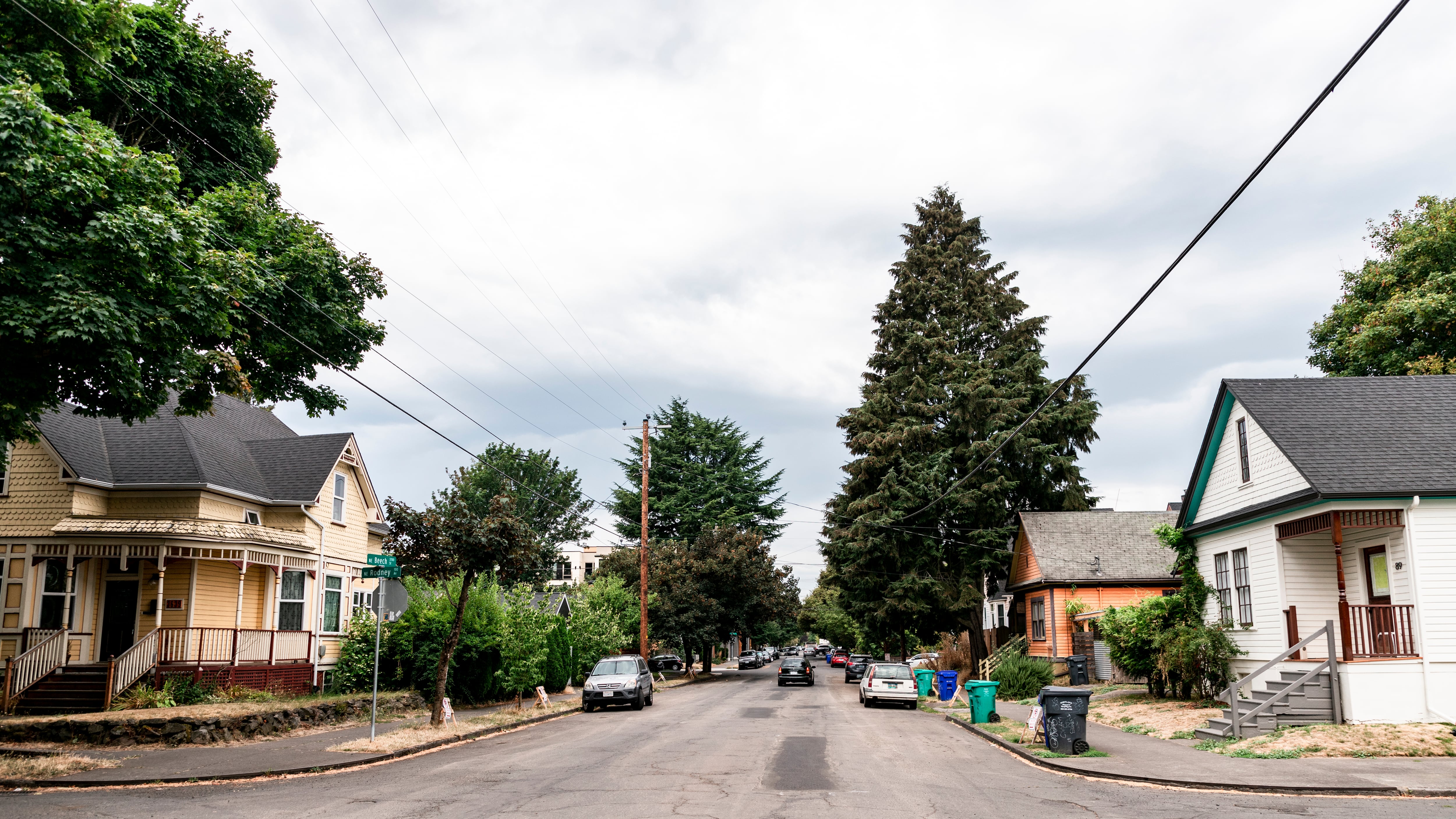The Portland Clean Energy Community Benefits Fund plans to announce 66 new grants totaling $111 million for climate relief projects aimed at low-income communities of color just before a meeting on July 13, where the Portland City Council will vote on the grantees.
Together, the projects will offset 300,000 metric tons of CO2, the fund said. A round-trip flight from Boston to London and back emits about 1 ton of CO2 per passenger, according to the Massachusetts Institute of Technology’s Climate Portal.
PCEF, as it’s known, will have assets of $298 million in the fiscal year that started July 1, according to Mayor Ted Wheeler’s proposed budget. That includes a beginning balance of $207 million and new revenue from taxes of $90.5 million. Some of that money is earmarked for grants made last year.
PCEF is funded by a surcharge on retailers with annual sales of both $1 billion or more in the U.S. and $500,000 or more within Portland. Grants are made by a nine-member committee and must be approved by the City Council.
Like many public programs in Oregon, PCEF is flush with cash, thanks to unexpectedly strong tax receipts during the pandemic, as the economy surged when most forecasters expected it to crater. City officials expected PCEF to have annual revenue of $44 million to $61 million. Actual revenue hit $63 million in the year ended June 30, 2020, and soared to $116 million the next fiscal year.
The 66 new grants mark PCEF’s second round of awards. The first round was marred by scandal after The Oregonian reported that the founder of one of the grantees, an energy firm called Diversifying Energy, had a history of defrauding energy companies and had failed to pay taxes in three states.
Diversifying Energy’s founder, Linda Woodley, said she had disclosed the tax matters. She sued the city in March alleging the fund defamed her and denied her due process when it revoked the $11.5 million grant to help install cooling units in low-income homes.
Most of the grants in the new round are going to clean energy. There are 28 firms receiving a total of $67 million in that category, according to a PCEF presentation. The second-largest category is workforce and contractor development, with 12 grantees getting $26 million.
Six organizations doing regenerative agriculture and/or green infrastructure will get $11 million. Regenerative agriculture is the practice of improving land as its farmed by regenerating topsoil and increasing biodiversity by composting waste, rotating crops, and planting species that attract pollinators.
“We are excited about our grants,” said Megan Horst, a professor at Portland State who sits on the grant committee at PCEF. “We have amazing projects coming in.”
At a PCEF meeting June 2, Horst noted that the fund hadn’t received many applications from organizations that plant trees, a known method of sequestering carbon.
Friends of Trees, a Portland organization that plants trees around town, applied for a grant from PCEF last year and was rejected. In addition to curbing carbon emissions, PCEF’s mission is to create green jobs and drive climate investments into low-income areas and into communities of color.
This year, Friends of Trees applied for a planning grant from PCEF, Horst said. She said she wasn’t permitted to say if the group had won it. A March report from the city showed that the tree canopy in Portland has shrunk since 2015, from covering 30.7% of Portland’s area to 29.8%—the equivalent of 823 acres. It’s the first time Portland’s tree canopy has dwindled in a span of five years since the city started tracking tree cover in 2000.
“I’m alarmed that the tree canopy is declining,” Horst said. PCEF may solicit proposals for tree-planting specifically, like it did for heat pumps to cool dwellings in low-income neighborhoods, Horst said. PCEF installed its first heat pump from that program earlier this month.

